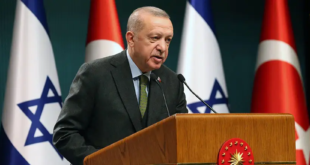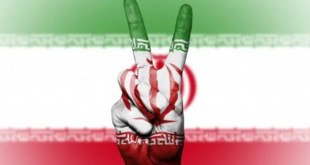New Palestinian parliamentary and presidential elections could be organised in less than 90 days but may not be possible any time soon without Hamas’ consent, officials involved in election planning said Saturday.President Mahmoud Abbas, who heads the secular Fateh faction which dominates the occupied West Bank, is expected to issue presidential decrees next week calling for early elections.
His aides are exploring different ways to try to ensure voting can take place in the West Bank as well as the Gaza Strip, which Hamas Islamists seized by force last month. One option would be holding elections in stages.
Abbas has called for international peacekeepers to be sent into Gaza to ensure free elections can be held, but Hamas has threatened to attack them.
Hisham Kuhail, chief elections officer for the Palestinian Central Elections Commission, said 90 to 100 days was the “maximum†needed to prepare for elections for both the presidency and legislature.
“We are bound to respond to the president as well as the prime minister as far as elections are concerned. Once they issue the decrees, we have to do it,†he told Reuters.
But a senior European diplomat said top Abbas aides had made clear in recent days that “these elections aren’t for tomorrowâ€.
Another official involved in election planning in the Palestinian territories said: “This is the fact that everybody knows. There will be no elections unless all the political parties agree. You can’t hold elections under gunfire.†A new poll of Palestinians, funded by the government of Norway, found that 85 per cent would like to see negotiations between Fateh and Hamas. Abbas said there could be no dialogue unless Hamas first agree to help organise elections.
Abbas’ aides said the president has the power to call early elections, citing a provision of the Palestinian Basic Law which allows him to issue decrees with the force of law while the Palestinian legislature is not in session.
Hamas says it would be unconstitutional for Abbas to call legislative elections before 2010, when they are next scheduled to take place, citing provisions of the Basic Law that fix the terms of the presidency and the legislature at four years.
Hamas won a majority of seats in the legislature in January 2006 elections but about half of its 74 lawmakers have been jailed by Israel, preventing them from exerting control.
Can issue decrees
“Yes, he [Abbas] can issue decrees with the force of law. But he can’t amend the Basic Law by decree. That can only be done by the PLC [parliament],†said Nathan Brown, a George Washington University professor who advised the Palestinians on constitutional matters.
Analysts said Abbas could initially limit any voting to the West Bank, home to about 2.5 million people, to further isolate Hamas. But doing so would further entrench the split with Gaza, where 1.5 million live.
Mouin Rabbani of the International Crisis Group said he believed Abbas was serious about holding early elections.
“Abbas feels he has a real opportunity to solve his ‘Hamas problem’, and elections are part of that campaign in terms of legitimising his emergency decrees,†Rabbani said.
“I think he’s mistaken. It’s going to be virtually impossible to hold legitimate elections under the present circumstances in the absence of a Fateh-Hamas agreement.†Kuhail said: “We are not the party that judges the legality of the [election] call. We only give advice, technical advice.†The Elections Commission, an independent body whose members are appointed by Abbas, updated Palestinian voter rolls in the occupied West Bank and Gaza in April.
Before early elections can be held, the commission would have to open polling stations for five days to allow Palestinians to register to vote and to file any electoral challenges, Kuhail said.
 Eurasia Press & News
Eurasia Press & News



